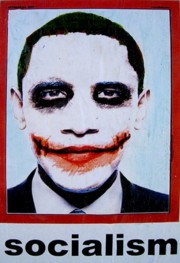Friday, February 14, 2003
LIBERTARIANISM IS A BROAD CHURCH
In some of his recent postings on Philosoblog, Jim Ryan seems to treat values and rules as interchangeable. I think this is a mistake. Libertarianism can for instance be either a value or a rule. In the first case liberty just feels good so I like it and value it. In the second, we try to maximize liberty because it leads to other things that we like for themselves -- such as security and prosperity. Conservatives like Jim do often seem to overlook the fact that libertarianism is a broad church in general -- ranging from anarcho-capitalists at one extreme to many varieties of minimal Statists. And all but the anarcho-capitalists do allow what Jim says that they do not -- they allow that there are some cases when liberty has to be subjugated to other values -- such as security. A good instance of such subjugation is the fact that most U.S. libertarians do seem to support action by the U.S. government against Saddam.
Where a surname like Ryan is concerned (though I seem to remember that Jim�s mother was Jewish), I would always suspect at least a vestigial attachment to the old Roman Catholic doctrine of moral absolutes -- something which makes it difficult for adherents to see that others do not organize their values in such a rigid way. The Catholic church does seem to be the main holdout of moral absolutes. People of all political persuasions are moral relativists these days. In 1981, I reported a study of Introductory Sociology students at an Australian university in which they were asked to respond to the statement: �There is no such thing as an absolute right and wrong�. 77 agreed and only 28 disagreed. I have no doubt what the direction of change would have been since then.
I don�t much like hitting people over the head with my academic research results on this blog but seeing that I have just done it once, I might as well do it again: I also did a general population survey of Californians (Ray, 1982) in which I looked at whether libertarian and conservative attitudes were statistically separable. They were not. Virtually all the libertarians were conservatives too. Despite the usual contentions to the contrary, there really is just one dimension of political attitudes out there in the big wide world of the English-speaking countries -- a Left/Right dimension with conservatives and libertarians at one end and socialists and lovers of big government at the other.
References:
Ray, J.J. (1981) The morals of attitudes. Journal of Social Psychology 115, 227-235.
Ray, J.J. (1982) Authoritarianism/libertarianism as the second dimension of social attitudes. Journal of Social Psychology, 117, 33-44.
***************************
Subscribe to:
Post Comments (Atom)
 It's the shared hatred of the rest of us that unites Islamists and the Left.
It's the shared hatred of the rest of us that unites Islamists and the Left.
 Eugenio Pacelli, a righteous Gentile, a true man of God and a brilliant Pope
Eugenio Pacelli, a righteous Gentile, a true man of God and a brilliant Pope

No comments:
Post a Comment